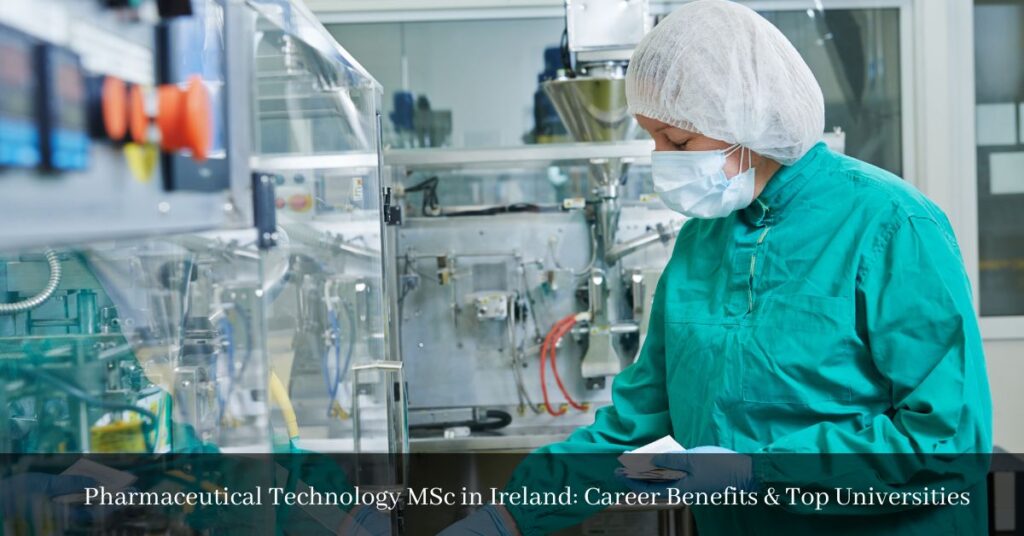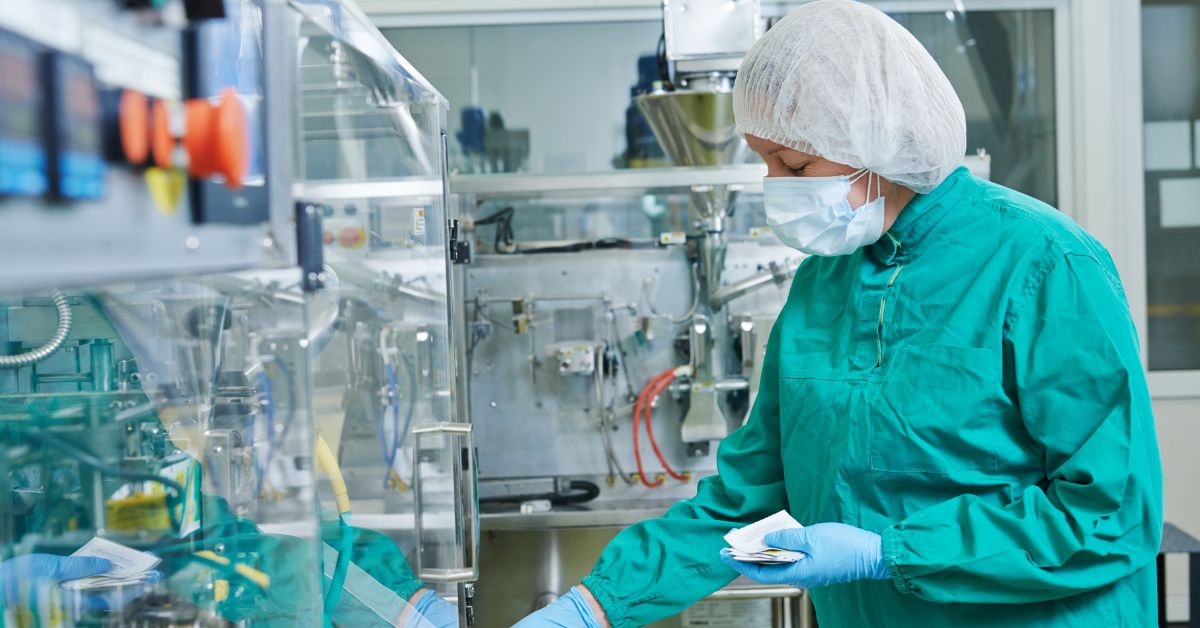The Role of an MSc in Pharmaceutical Technology in Modern Medicine
Have you ever wondered how a simple pill goes from a lab to your medicine cabinet? Behind every life-saving drug is a team of pharmaceutical experts who ensure its safety, effectiveness, and quality. An MSc in Pharmaceutical Technology trains you to be part of this crucial process—developing, testing, and regulating medicines that impact millions of lives.
Ireland is a global hub for pharmaceutical innovation, home to giants like Pfizer, Johnson & Johnson, and AstraZeneca. With world-class universities, cutting-edge research facilities, and excellent job prospects, it’s a top choice for Indian students pursuing a master degree in pharmacy
This article explores what makes this degree valuable, the skills you’ll gain, and how it can launch your career in the pharmaceutical industry.
Why Pharmaceutical Technology Matters in Healthcare
Before diving into course details, it’s essential to understand why this field is so critical. Medicines don’t just appear overnight—they undergo years of research, testing, and regulatory checks before reaching patients.
Drug Development & Formulation
A pharmaceutical technologist’s primary role is to design and optimize drug formulations. This includes:
- Developing tablets, capsules, or injectables
- Ensuring stability and proper dosage
- Using advanced technologies like nanotechnology for targeted drug delivery
In Ireland, universities like University College Cork (UCC) and Trinity College Dublin (TCD) offer hands-on training in formulation science, preparing students for real-world challenges.
Top Reasons to Study Pharmaceutical Technology in Ireland
Ireland isn’t just known for its scenic landscapes—it’s Europe’s second-largest exporter of pharmaceuticals. Here’s why Indian students choose Ireland for this degree:
1. Industry Connections & Job Opportunities
Over 300 pharmaceutical companies operate in Ireland, including 9 of the world’s top 10 drugmakers. Graduates often secure roles in:
- Research & Development (R&D)
- Quality Control & Assurance
- Regulatory Affairs
2. Post-Study Work Visa (Stamp 1G)
After completing your MSc degree, you can stay in Ireland for two years to gain work experience. Many students transition to full-time roles at companies like Pfizer, Eli Lilly, or Novartis.
3. Scholarships & Affordable Education
Irish universities offer scholarships covering 30–50% of tuition fees. Compared to the US or UK, Ireland provides high-quality education at a lower cost.
What You’ll Learn in an MSc Pharmaceutical Technology Program
This degree goes beyond textbook theories—it combines lab work, research, and industry insights.
1. Core Subjects
- Pharmaceutical Analysis (HPLC, GC-MS, spectroscopy)
- Drug Delivery Systems (nanoparticles, transdermal patches)
- Medicines Control & Regulation (GMP, FDA/EMA guidelines)
2. Hands-On Training
- Lab Sessions: Work with advanced equipment like mass spectrometers and X-ray diffractometers.
- Industry Projects: Collaborate with pharmaceutical companies on real-world challenges.
3. Specializations
Many programs allow you to focus on:
- Industrial Pharmacy (manufacturing & quality control)
- Clinical Trials & Drug Safety (pharmacovigilance)
Career Paths After Your MSc
1. Pharmaceutical Scientist (€40,000–€70,000)
As a pharmaceutical scientist, you’ll be at the forefront of drug development, working in state-of-the-art research labs to create new formulations or improve existing medications. Your typical responsibilities include designing controlled-release tablets, developing sterile injectables, or creating novel drug delivery systems like transdermal patches. Many graduates start in analytical roles using HPLC and mass spectrometry before progressing to formulation development. With Ireland’s booming pharma sector, scientists at companies like Pfizer and Novartis often see 15-20% salary increases within 3-5 years, plus opportunities to work on groundbreaking therapies in oncology or rare diseases.
2. Quality Assurance Specialist (€45,000–€75,000)
Quality assurance professionals guard drug safety, ensuring every medicine batch meets strict GMP standards before reaching patients. You’ll conduct document reviews, oversee validation processes, and lead internal audits while working closely with production teams. Many Irish universities offer specialized modules in quality systems that align with the Qualified Person certification requirements. The role provides excellent stability – with Ireland producing over 50% of Europe’s medicines, QA specialists are always in demand. Senior pharmacovigilance or quality management positions can reach €90,000+ in multinational companies.
3. Regulatory Affairs Officer (€50,000–€80,000)
Regulatory affairs specialists bridge the gap between pharmaceutical companies and health authorities like the EMA and FDA. You’ll prepare complex submission dossiers, track changing regulations across different markets, and coordinate clinical trial approvals. This role combines scientific knowledge with legal expertise – perfect for those who enjoy technical and strategic work. Many officers specialize in specific regions (EU, US, or emerging markets) or therapeutic areas like biologics. With experience, you could progress to head of regulatory affairs, overseeing entire product portfolios and leading teams of specialists.
4. Research Scientist (PhD Track)
For those drawn to innovation, pursuing a PhD after your MSc opens doors to cutting-edge research in academia or industry R&D. You might work on next-generation mRNA vaccines, targeted cancer therapies using nanoparticles, or AI-driven drug discovery. Irish universities like Trinity College Dublin offer strong industry-linked PhD programs where students collaborate directly with companies like AstraZeneca. Many graduates secure positions as principal investigators or move into senior scientist roles in biotech startups. The path requires dedication but offers the chance to invent the medicines of tomorrow while earning €35,000-45,000 during your PhD studies.
Top Universities in Ireland for Pharmaceutical Technology
University | Program Highlights |
University College Cork (UCC) | Strong industry links, qualified person course Ireland option |
Trinity College Dublin (TCD) | Focus on drug delivery & nanotechnology |
University of Limerick (UL) | Includes pharmacy technician training Ireland modules |
How to Apply (Indian Students)
Eligibility
- Bachelor’s in Pharmacy, Chemistry, or Life Sciences
- IELTS 6.5+ or TOEFL 90+ (if English isn’t your first language)
Documents Needed
- Academic transcripts
- Statement of purpose (why pharmaceutical technology?)
- Two recommendation letters
Scholarships
- Government of Ireland Scholarships (full tuition + living costs)
- University-specific awards (merit-based)
Life as a Student in Ireland
- Affordable living (compared to the UK/US)
- Vibrant Indian community (cultural societies, festivals)
- Travel opportunities (explore Europe during breaks)
Conclusion
An MSc in Pharmaceutical Technology is more than a degree—it’s a gateway to shaping the future of medicine. Ireland’s thriving pharmaceutical sector, industry-aligned courses, and post-study work options make it an ideal destination for Indian students.
Whether you dream of developing life-saving drugs or ensuring their safety, this degree equips you with the skills to make a real impact.
Interested in pharmaceutical technology courses in Ireland? GlobalGrad Ireland can help you choose the right program and guide you through the admission process.


